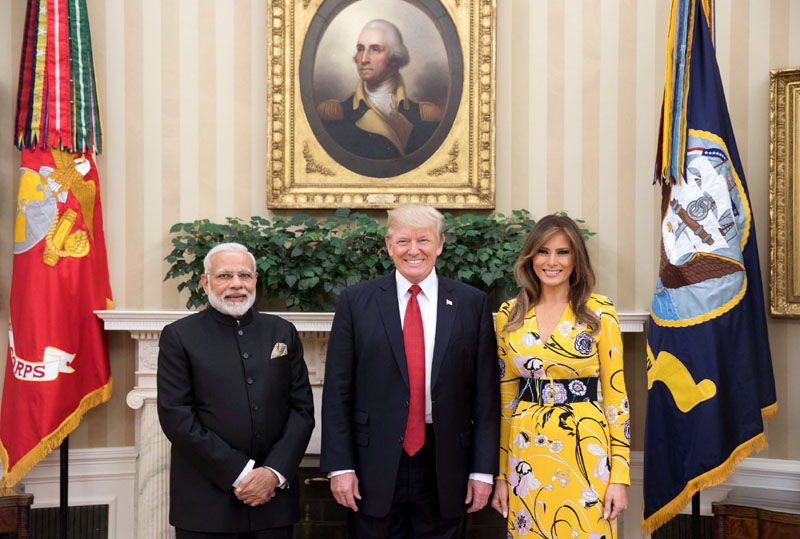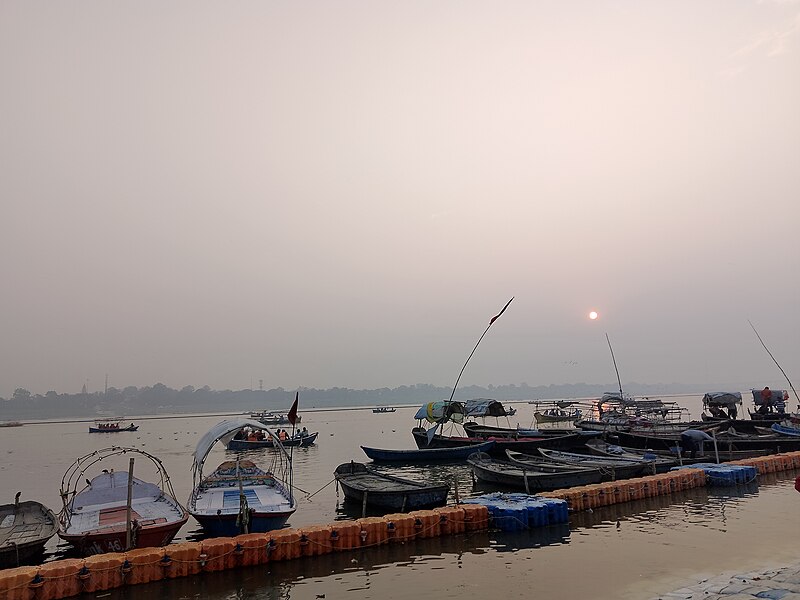India has to do more to win US support
Ravi Shanker Kapoor | June 28, 2017 12:40 am

The Prime Minister, Shri Narendra Modi with the President of United States of America (USA), Mr. Donald Trump and the first lady of USA, Melania Trump, at White House, in Washington DC, USA on June 26, 2017.
By designating Syed Salahuddin, chief of Kashmiri militant group Hizbul Mujahideen, as a global terrorist, the United States has underlined its commitment to fight jihad. The announcement about the Pakistan-supported terrorist came hours before the meeting between Prime Minister Narendra Modi and President Donald Trump; it may indicate a shift in American policy. The shift, however, would depend as much upon New Delhi as it would upon Washington.
It has been pointed out in the Indian media that the action was too late. In general, there is often wonderment, sometimes bordering on consternation, that the United States, despite being the victim of the single most deadly terror attack ever, is not doing enough to combat fundamentalism and jihad. Why does the US support Pakistan despite the well-known fact that it is the jihad factory? Why does it give financial aid to a country that is not only the cause of regional instability but also whose stooges torment American soldiers in Afghanistan and elsewhere? Why doesn’t Washington act firmly and decisively against a nation that harbored its biggest enemy, Osama bin Laden, and promoted his ideology? Why is America, the champion of liberty and democracy, so pally with Pakistan, a sham democracy where liberty is dying?
All valid questions, but two terms simply provide the answer: history and national interest. Ever since Independence, Pakistan has been a consistent ally of the US. Our western neighbor was a member of the Central Treaty Organization (Cento), formerly Middle East Treaty Organization, or Baghdad Pact Organization. In existence from 1955 to 1979, it comprised Turkey, Iran, Pakistan, and the United Kingdom.
“Formed at the urging of Britain and the United States, the Central Treaty Organization was intended to counter the threat of Soviet expansion into vital Middle East oil-producing regions,” according to Britannica, adding that it was never very effective. The point, however, is that Pakistan was aligned with the US.
The Southeast Asia Treaty Organization (Seato) was also constituted for the similar purpose and it remained in forced from 1955 to 1977. It consisted of Australia, France, New Zealand, Pakistan, the Philippines, Thailand, the United Kingdom, and the United States. Though Pakistan exited the pact in 1968, its alignment with the US was indisputable.
In the 1980s, Pakistan became the conduit in the US’ proxy war against the Soviet Union in Afghanistan. After the September 11, 2001, attack, the US again needed Pakistan to subdue the Taliban in Afghanistan.
This is not to say that the US-Pakistan relations have been friendly all the time; there were periods in which the ties got strained; but, on the whole, Pakistan has proved to be a useful ally to the US.
On the other hand, India has proved to be cantankerous at best and hostile at worst for the US. Despite tremendous goodwill in America for the newly freed India, and the world’s biggest democracy, New Delhi wasted. The most important factor was Jawaharlal Nehru’s puerile obsession with socialism and his pathological hatred for the capitalist West. His alter ego, the traitor V.K. Krishna Menon, made a name for himself for his rabidly anti-Western views. I suspect that he was compromised by KGB. Anti-Americanism didn’t die with Nehru. Indira Gandhi signed a joint statement with Soviet Premier Alexei Kosygin that condemned the US for its “imperialist aggression in Vietnam.”
The upshot of such developments was that America’s benign attitude towards us turned malignant, as evident from its pro-Pakistan tilt in the 1971 War.
Historically, Pakistan has furthered the US’ national interest, whereas India has tried to jeopardize it.
Further, Pakistan is our problem, not America’s. We ask the Americans to declare Pakistan a terrorist state. Have we done that? We want that the Americans should be solicitous of our interests. Have we been to theirs? Forget about the Nehru-Gandhi past; even as late as last year, Modi refused to align with Washington against China’s aggression in South China Sea.
Against this backdrop, we should not expect much more from the Americans. We have to meet them halfway, for bilateral ties are a two-way street.






























